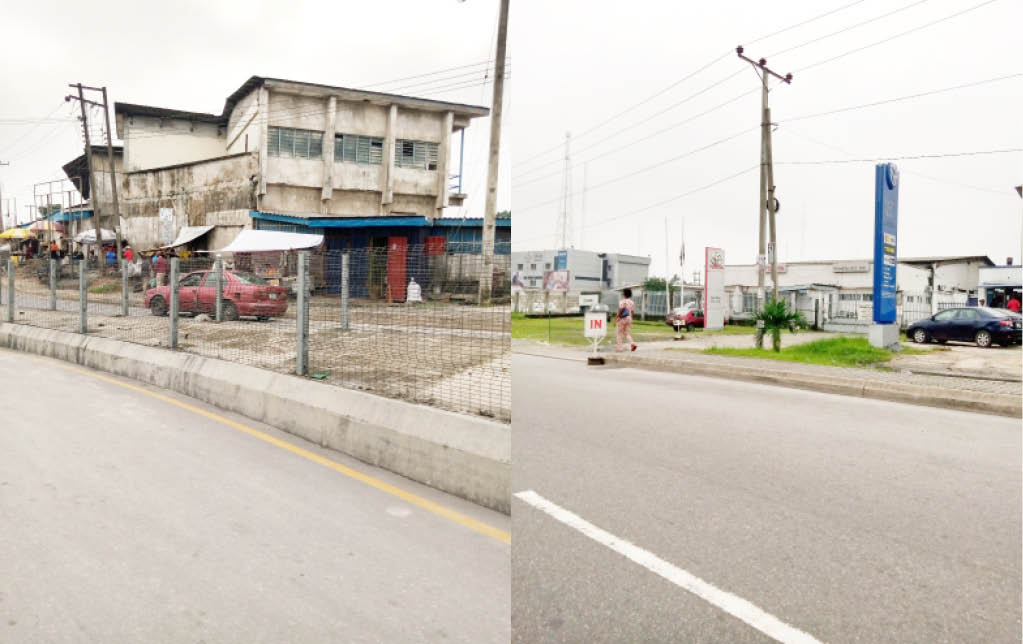How militancy, COVID-19 affected businesses in Trans-Amadi, P/Harcourt
Given the high concentration of companies and other business establishments in the Trans-Amadi industrial layout, it can be properly described as the business hub of Port Harcourt, the Rivers State capital. It occupies 2,5000 hectares. It shares boundaries with D-Line in the southwestern part of the city, Woji township, east, and the popular Rumola in […]

Sections of Trans-Amadi industrial layout
Given the high concentration of companies and other business establishments in the Trans-Amadi industrial layout, it can be properly described as the business hub of Port Harcourt, the Rivers State capital. It occupies 2,5000 hectares.
It shares boundaries with D-Line in the southwestern part of the city, Woji township, east, and the popular Rumola in the north-west. The area also accommodates the main abattoir in the city.
The major zoological garden in Port Harcourt is also located in the Trans-Amadi area. But the zoo, which was first opened for business in 1975, has become a shadow of itself as its structures have been dilapidated while empty cages for animals dot the facility.
However, the Rivers State Executive Council came to the rescue of the rustic zoo when it recently approved N472, 92,88million for its rehabilitation.
The Commissioner for Culture and Tourism in the state, Mrs Tonye Oniyide, explained that the approved sum would be used to renovate the administrative block, museum, staff quarters, snack kiosk and the general conveniences.
Also to be rehabilitated is the retaining walls, gatehouse, outside perimeter wire mesh, while the front gate of the premises would be remodelled.
Mrs Oniyide said the rehabilitation, when completed, would boost tourism in the state.
In the past, the industrial layout had undergone transformation. In 2003, for instance, there were 248 new residential units in the area.
There are over 600 companies and other business establishments in the layout. Such business outfits cut across oil and gas, hospitality industries, manufacturing companies, breweries, as well as recreational and event centres.
The multi-billion naira Rivers State gas turbine is also located at Trans-Amadi. The gas turbine, which was constructed by the Peter Odili-led administration, was meant to complement the efforts of the Port Harcourt Electricity Holding Company in providing power to the entire city.
Daily Trust Saturday learnt that many of the companies and industries in the area were shut down on the heels of militancy in Rivers State. The COVID-19 pandemic also had a negative economic effect on the area as many companies were shut down and their employees sacked.
One noticeable feature of the industrial layout is the way many of the companies there concealed their identities.
A prominent businessman in the area, who did not want his name mentioned, said many companies refused to erect signposts because of extortion from local government officials who always demanded different kinds of rates.
“If you go round the entire Trans-Amadi industrial layout you would find out that many companies do not put signposts or any means of identification. The reason is because of the fear of those that come to demand for one payment or another,’’ he said, adding that the layout remained the business hub of Port Harcourt.
An engineer in one of the multi-national oil companies in the layout, Mackson Offoka said, “Trans-Amadi is one of the oldest industrial locations in Nigeria. It accommodates many companies and industries. The area was structured in a way to accommodate only companies and industries, but later, it began to accommodate residential buildings. There have been so many transformations in the area, with many access roads.
The construction of a flyover leading to Woji has added value to the area. New companies have come up while some others have closed shop. There are many hospitality industries that have sprung up in the area.’’
A resident of Elekahia estate, Paul Nmmadu, said the industrial layout was more of an elitists’ zone, given the presence of multi-national companies and industries in the area.
“The layout is not designed to accommodate micro-economic operators. You hardly see small and medium enterprises in the area. All you see is multi-national companies and industries owned by the high and mighty.
Apart from the slaughter market and the Port Harcourt zoo, where the poor and the rich converge to transact one form of business or another, the area was designed to accommodate only the elite,’’ he said.
Since Governor Nyesom Wike assumed office, he has carried out many infrastructural development projects that have transformed the area. Some of the projects are the Woji flyover, Akpajo/Woji/Slaughter road, the NLNG bypass, as well as the reconstruction of the Odili-Trans-Amadi-Garrison road.
The governor also cancelled all forms of taxes and levies and empowered the state Internal Revenue Board as the only agency to relate with companies, industries and other business concerns. The action of the state government, it was learnt, has stopped local government officials from extorting money from business operators.
